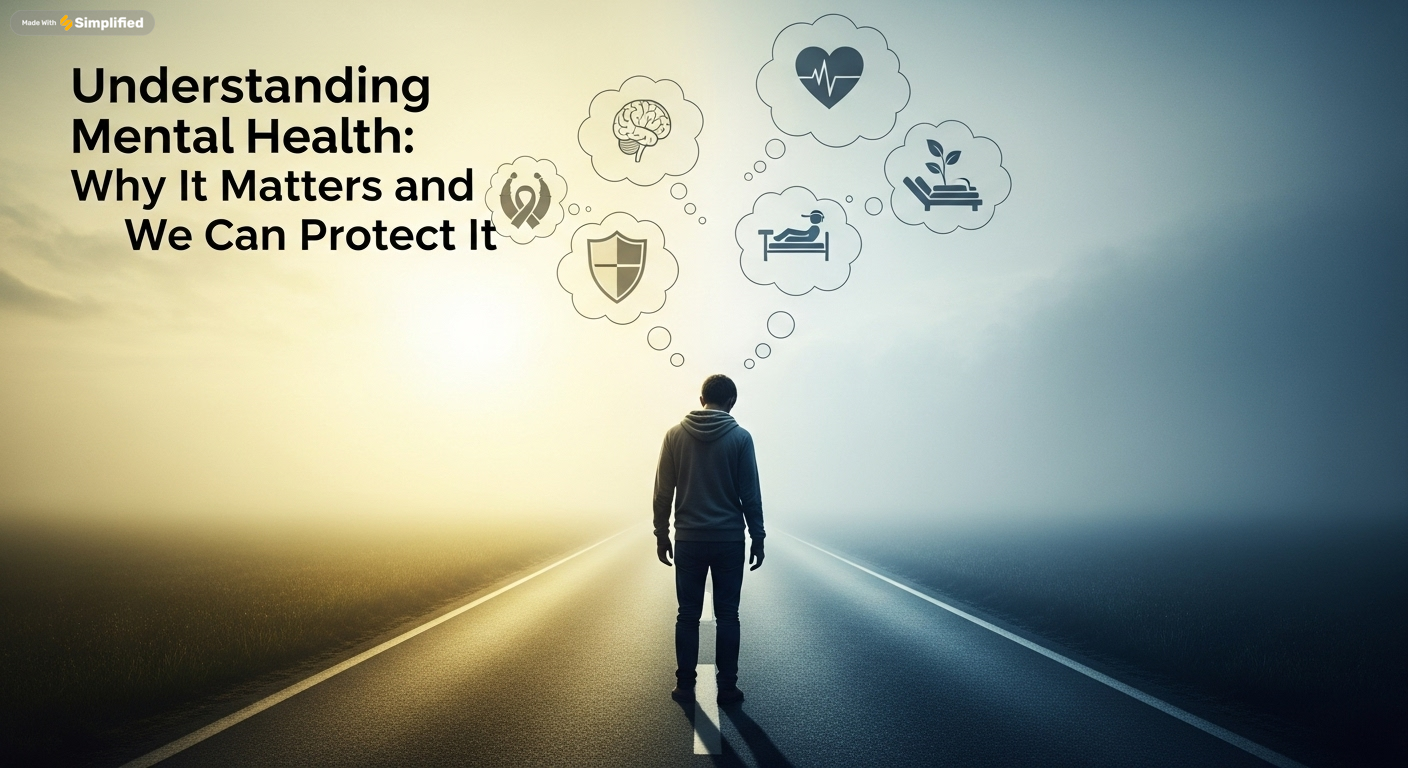
The Hidden Toll of Stress on Mental Health and How to Manage It
Stress is something everyone experiences. Whether it’s a looming deadline, financial worries, or challenges in relationships, stress is part of daily life. In small doses, it can even be helpful—motivating us to act, focus, and solve problems. But when stress becomes chronic, it takes a heavy toll on both the body and the mind. The connection between stress and mental health is powerful. Long-term stress can increase the risk of anxiety, depression, and burnout. It can interfere with sleep, concentration, and emotional well-being. Understanding how stress affects mental health—and learning strategies to manage it—is essential for leading a balanced, healthy life.
Stress is the body’s natural response to pressure or threats, often referred to as the “fight or flight” response. When faced with a challenge, the brain signals the release of stress hormones like cortisol and adrenaline. These chemicals increase heart rate, sharpen alertness, and prepare the body to respond quickly.
While this response is useful in emergencies, modern life often keeps people in a near-constant state of stress—without a chance to fully relax. Unlike our ancestors, who faced short bursts of stress while hunting or escaping danger, many people today deal with long-lasting pressures such as work overload, financial struggles, and social demands.
How Stress Affects Mental Health
Although stress begins as a physical reaction, its effects quickly spill over into emotional and psychological health. Some of the most common mental health impacts include:
1. Anxiety
Chronic stress can cause people to feel constantly “on edge.” Racing thoughts, restlessness, and worry become part of daily life, often leading to generalized anxiety disorder or panic attacks.
2. Depression
Stress can drain energy, create feelings of hopelessness, and interfere with the brain’s ability to regulate mood. Over time, this can contribute to depression, especially when stressful events are ongoing or traumatic.
3. Sleep Disorders
Stress often disrupts sleep, leading to insomnia or restless nights. Poor sleep then worsens mental health, creating a cycle of fatigue and irritability.
4. Burnout
Prolonged workplace stress can cause burnout—a state of emotional, mental, and physical exhaustion. People experiencing burnout often feel detached, unmotivated, and unable to perform well at work or home.
5. Cognitive Problems
High stress levels interfere with memory, decision-making, and concentration. Many people under stress report feeling forgetful, distracted, or overwhelmed by simple tasks.
Signs That Stress Is Taking a Toll
While some stress is normal, it’s important to recognize when it begins to harm mental health. Warning signs include:
Feeling constantly overwhelmed or anxious
Trouble relaxing or “switching off”
Frequent irritability or mood swings
Physical symptoms like headaches, muscle tension, or stomach problems
Withdrawal from social activities
Declining performance at work or school
Recognizing these signs early can help prevent more serious mental health conditions from developing.
Healthy Ways to Manage Stress
1. Physical Activity
Exercise is one of the most effective ways to relieve stress. Activities like walking, running, yoga, or even dancing reduce cortisol levels, release endorphins, and improve mood. Just 30 minutes of movement a day can make a big difference.
2. Mindfulness and Meditation
Practicing mindfulness—focusing on the present moment without judgment—helps quiet racing thoughts. Meditation, deep breathing, and progressive muscle relaxation are powerful tools for calming the mind.
3. Healthy Sleep Habits
Prioritizing sleep restores both body and mind. Creating a consistent bedtime routine, limiting screen time before bed, and practicing relaxation techniques can improve sleep quality and reduce stress.
4. Balanced Nutrition
Food affects mood more than most people realize. Diets high in processed foods, caffeine, and sugar can increase anxiety and stress. Eating balanced meals with whole grains, lean proteins, fruits, and vegetables supports both physical and mental health.
5. Time Management
Overcommitment is a major source of stress. Learning to set priorities, delegate tasks, and say no when necessary can reduce pressure and free up time for rest and recovery.
6. Social Support
Talking with friends, family, or a support group provides emotional relief and perspective. Sharing feelings helps people realize they’re not alone and gives them encouragement to face challenges.
7. Therapy and Professional Help
Sometimes, stress requires more than self-help strategies. Therapists and counselors can teach coping techniques, identify stress triggers, and provide treatment for related conditions such as anxiety or depression.
Unhealthy Ways People Cope With Stress
While some coping strategies are healthy, others can worsen the problem. Common but harmful approaches include:
Overeating or unhealthy eating (stress eating)
Excessive alcohol or drug use
Withdrawing from others
Overworking without rest
Ignoring problems instead of addressing them
These behaviors may provide short-term relief but often lead to bigger physical and mental health issues in the long run.
The Role of Workplaces and Schools
Stress management isn’t just an individual responsibility—it’s also a social one. Workplaces and schools play a huge role in shaping stress levels. Supportive environments can prevent burnout and improve well-being.
Workplaces can help by:
Encouraging breaks and flexible schedules
Offering mental health resources or employee assistance programs
Promoting open conversations about stress and mental health
Schools can help by:
Teaching stress-management techniques early
Providing counseling services for students
Reducing excessive workloads and emphasizing balance
When organizations support stress management, productivity rises, and mental health outcomes improve.
Long-Term Benefits of Managing Stress
The benefits of stress management extend far beyond feeling calmer in the moment. People who learn to handle stress effectively experience:
Lower risk of anxiety and depression
Improved concentration and memory
Stronger immune systems and better physical health
Better relationships and communication
Greater resilience when facing challenges
Learning healthy stress management is an investment in long-term mental and physical well-being.
Conclusion
Stress is an unavoidable part of life, but it doesn’t have to control us. When left unmanaged, stress can damage mental health, leading to anxiety, depression, and burnout. But with awareness and healthy coping strategies, we can reduce its impact and even use it as motivation for growth.
By prioritizing exercise, sleep, mindfulness, and social support, individuals can build resilience and protect their mental health. At the same time, workplaces, schools, and communities must take responsibility for creating environments that reduce unnecessary stress and promote well-being.
Stress may be universal, but so is the ability to overcome it. By learning to manage stress wisely, we can protect not just our mental health but also our overall quality of life.


